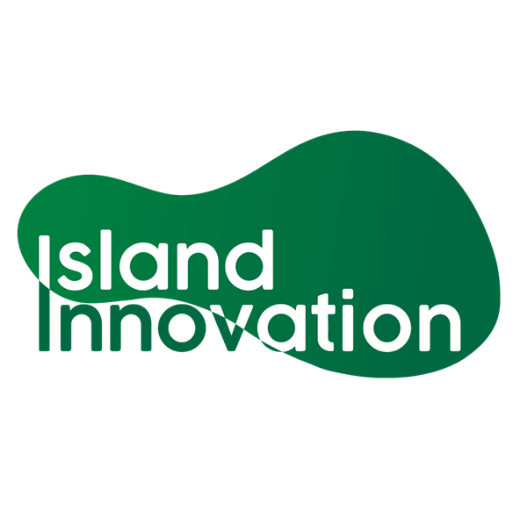Participating in the Virtual Island Summit’s (VIS) fifth anniversary, the Edge Foundation, which has supported the VIS since 2018 delivered a panel titled: “Future Skills – Preparing Young People for Work in an Island Context”
Featuring the Foundation’s Executive Director, Olly Newton as a moderator, the panelists provided a global perspective on island-based education, they were: Jan Gimbert from the Isle of Man’s Department of Education, Neeme Rand, Headmaster at Estonia’s Kuressaare Ametikool, Jeanette Hart, Vice Principal of the Guernsey College Further Education, Stuart Penn, Head of Service, Skills Jersey, Keith Nurse, President of Science, Technology & Applied Arts Trinidad & Tobago and Orlando Hewitt, Technical Officer, CANTA Secretariat, TVET Council Barbados.
The global reach of the panel enabled speakers to identify commonalities in island education needs and challenges, but also how these match up with islands’ socio-economic needs. “We need to identify what is a mismatch going to be in the future between the skills that are available on the island and the jobs that are being offered,” noted Stuart Penn, “We also need to minimize skills shortages now within the future [and] develop programs that are tailored to our anticipated skills demands.” Reaching these goals requires versatility and flexibility from education centers as well as opportunities to provide young people with tangible skills that complement traditional education.
Tangible Skills
Job markets are often less deep and varied on islands, this can in turn lead to increased unemployment, brain drain, and the subsequent breakdown of local economies. This is the reality that is faced by islanders, which makes it all the more important to future-proof a community’s socio-economic health by making education more resilient and fit-for-purpose. “We need to be focused on developing skills that would stay with the learners throughout their lives and support their ownership of their career decisions,” adds Jan Gimbert.
“In 2016, 18% of 18 year olds leaving schools [on the Isle of Man] went straight into the workforce whereas last year in 2022 this was 33%,” explains Gimbert, highlighting how local businesses have collaborated with schools to reduce the community’s brain drain but also providing tangible skills and experience to young people. “But there’s some feedback we have from employers a number of years ago which was telling us that [despite our training programmes] young people weren’t prepared for the world of work.”
Reflecting on the system that was in place, educators realized that young people needed a better understanding of how their own interests could be turned into employment skills and relevant opportunities. As Jeanette Hart and Neeme Rand corroborate from their own experiences in Guernsey and Estonia respectively, the key to limiting brain drain and unemployment within island communities is to implement pathways to local vocations or skill development. In the case of Rand’s Kuressaare Ametikool this means offering a wide range of curriculums that take into account the market’s rising demand for technical jobs. This creates a pool of versatile skilled workers that can in turn attract companies to the community – a win-win scenario for islanders.
Lifelong Learning & Adaptation
Island communities in Europe provide a solid blueprint for integrating employment skills and preparing young people for the workplace, but how does this work within the context of a developing nation? As Keith Nurse and Orlando Hewitt relay, the situation in the Caribbean requires a tighter approach to education and certifications in line with funding constraints.
”Youth unemployment is a major issue for us,” states Nurse, “60 to 70% of potentially educated population [in Trinidad & Tobago] migrate so the retention levels in the economy tend to be low partly because of the low absorptive capacity of the economy. Economic diversification does not come without innovation, and if you’re not investing in innovation, it is unlikely that you would be able to facilitate this process,” states Nurse, describing how he is working to shift the focus of academic institutions in Trinidad and Tobago from purely educational to also facilitating economic innovation.
By focusing on digitalization of schooling as well as Science, Technology, Engineering, Entrepreneurship, IT and Mathematics topics, there has been an increase in student retention rates. The major stepping stone, Nurse explains, was creating a pathway for business incubation and acceleration in tandem with tertiary education. By rolling multiple development opportunities into one, it creates a more efficient use of resources and funding while also increasing innovation. As Hewitt follows up with, the next logical step is to then have regional standards that enable entrepreneurs and skilled professionals to move freely across the Caribbean.
“We conceptualize the vocational qualification at various levels – from levels one through five – and persons can move from Trinidad to Jamaica to Antigua and Grenada with this vocational qualification to seek employment within various occupational areas for which we have industry approved standards.” A key component in these programmes is cross-disciplinary collaboration within education. As the panel’s other speakers highlight, creating those initial connections between educational institutions, businesses and other organizations can create a base to build on and help develop relevant programmes for the community.
It take a village to raise a child, the saying goes, and the Edge Foundation’s panel showcases just how interconnected socio-economic programmes can future-proof island communities.




